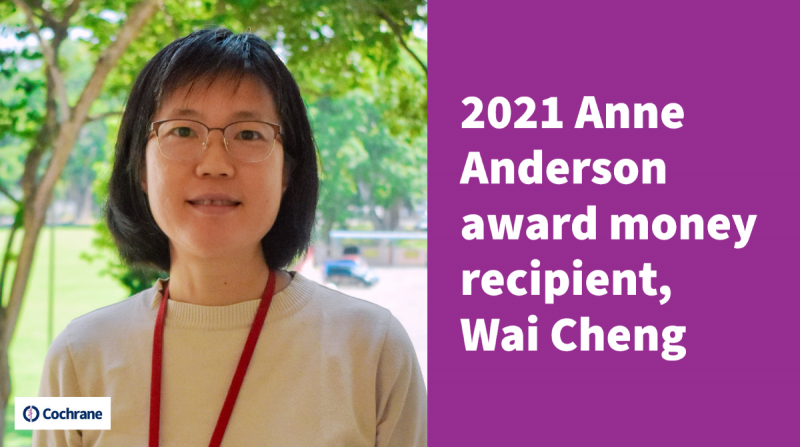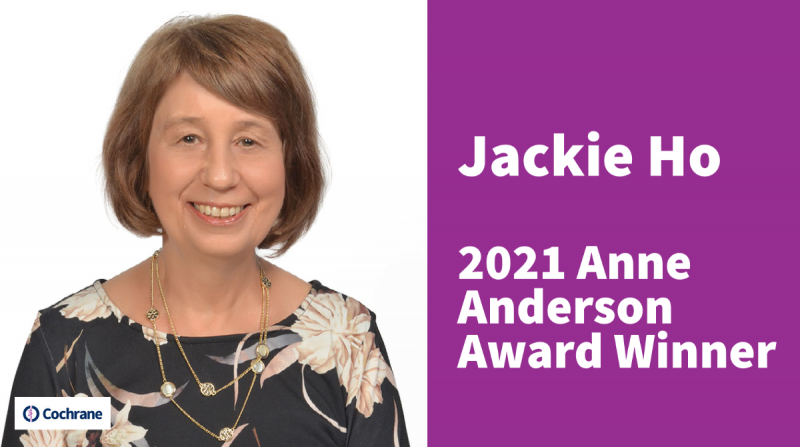Dear Community members and friends,
Context
So much happens in a year. Last year, Cochrane responded quickly to the pandemic with rapid, living reviews – sharing the best evidence on key interventions and diagnostic tests to support the world in tackling this unprecedented challenge. We made all of our Coronavirus (COVID-19) resources freely available, open access – which they remain today, including our COVID-19 Study Register which now has references to well over 100,000 studies. Our work has never been more important or relevant.
We find ourselves still living with the pandemic in 2021. The rollout of vaccines has been a great global achievement, but exacerbated health inequalities as the global north rolled out vaccinations, and the global south has been left behind.
2021 was the year we committed to full Open Access publishing by 2025, as part of making our evidence accessible, usable, and available to all. This is a vital step towards achieving our vision of “better health for all people”, and also reflects the fantastic drive towards open access across the publishing sector and particularly for peer reviewed research – core to our work and impact. This will have implications for our income and business model, and so we plan to diversify our income streams and our products.
We were fortunate this year to receive over £17m funding from global funders to Cochrane groups globally. We look forward to continuing those relationships and working with them to do even more to improve health for all people.
Transformation
In this context, we have launched a programme of transformation to ensure we maintain our relevance and pre-eminence into the future. Our ‘Strategy for Change’ describes our priorities for working in a changing environment through to 2023, building on the insight and feedback of the extraordinary Cochrane community, and the experience of the pandemic. Cochrane Reviews are recognized internationally as a gold standard for high-quality, trusted health information. We do not accept commercial or conflicted funding, which is vital for us to generate authoritative and reliable information, working freely, unconstrained by commercial and financial interests. This makes it even more important that we adapt and change, and get fit for the future so we can not only survive but thrive into the future.
As part of that transformation programme, over the last three months the Cochrane community has discussed:
- How we can remain true to our values while adapting to challenges;
- How we remain the standard-setter for evidence synthesis; and
- How to change to ensure we produce timely, high-quality evidence that serves the different users of evidence.
Achievements
2021 has been another year of exceptional achievement for Cochrane. Highlights include:
- The Impact Factor for the Cochrane Database of Systematic Reviews grew to 9.266.
- In 2021, 3100 authors prepared new and updated reviews by summarising evidence from over 10,000 included studies
- We made statements at two World Health Assemblies - advocating for the need of evidence synthesis in the response to COVID-19
- We hosted a major event - Cochrane Convenes: Preparing for and responding to global health emergencies: what have we learnt from COVID-19
- The Cochrane Library now has a total of 17 national and regional licenses, representing immediate full access for more than 500 million people.
See more of our achievements
Plans for 2022
Your contributions shaped the strategy for change and have offered valuable insights as we consider the future. They ensure we can together build a sustainable future and remain at the forefront of evidence synthesis. We will now be determining the direction of travel for how we produce evidence synthesis in future, and progressing implementation of this multi-year change programme. We continue to improve our process, structures and systems for evidence production to be able to respond quickly and reliably to user-needs, whilst demonstrating good research and publishing practice.
In 2022, we will be seeking new ways to generate income and be sustainable in the context of our commitment to Open Access, funding challenges and competition. We will be recruiting a new Chief Executive, and a Director of Development to lead on fundraising.
We are hugely proud of our Cochrane Community whose collective energy, drive and enthusiasm make such a difference. Collaboration is our watchword and we work together to achieve our goals bringing together diverse interests, expertise, and geographies. While there are challenges, we know it is more important than ever to share our evidence and contribute to a world of better health for all people.
Thank you for all you do. We are hugely optimistic about the future, and look forward to seeing you and working with you in 2022 and beyond. All the best for the holidays and new year.
Tracey Howe, Co-chair
Catherine Marshall, Co-chair
Karla Soares-Weiser, Editor-in-Chief
Judith Brodie, Interim Chief Executive
















